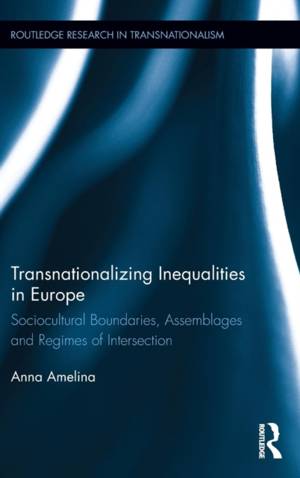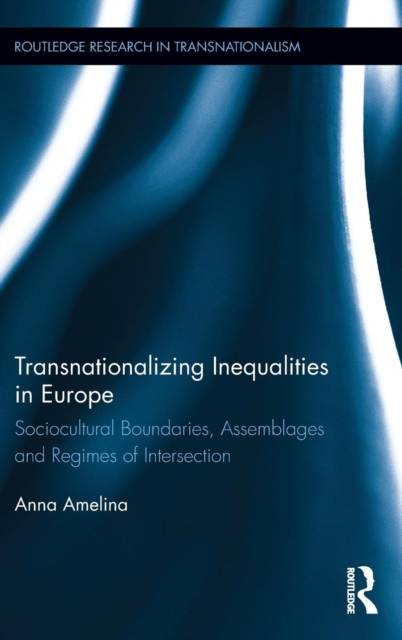
- Retrait gratuit dans votre magasin Club
- 7.000.000 titres dans notre catalogue
- Payer en toute sécurité
- Toujours un magasin près de chez vous
- Retrait gratuit dans votre magasin Club
- 7.000.000 titres dans notre catalogue
- Payer en toute sécurité
- Toujours un magasin près de chez vous
Transnationalizing Inequalities in Europe
Sociocultural Boundaries, Assemblages and Regimes of Intersection
Anna AmelinaDescription
Unequal life-chances became a key feature of cross-border migration to, and within, the enlarged Europe. Combining transnational, intersectional and cultural-sociological perspectives, this book develops a conceptual tool to analyse patterns, contexts and mechanisms of these cross-border inequalities.
This book synthesizes the theories of social boundaries and of intersectionality, approaching cross-border relations as socially generated and as an inherent element of contemporary social inequalities. It analyses the mechanisms of cross-border inequalities as 'regimes of intersection' relating spatialized cross-border inequalities to other types of unequal social relations (in terms of gender, ethnicity/race, class etc.). The conceptual arguments are supported by empirical research on cross-border migration in Europe: migration of scientists and care workers between Ukraine and Germany.
This book integrates the analysis of space - including cross-border categories of global and transnational - into intersectionally-informed studies of social inequalities. Broadly, it will appeal to scholars and students in the areas of sociology, political sciences, social anthropology and social geography. In particular, it will interest researchers concerned with transnational and global social inequalities, the interplay of the categories 'gender', 'ethnicity' and 'class' on the one hand and global and transnational relations on the other, theories of space and society, and migration and mobility in Europe.
Spécifications
Parties prenantes
- Auteur(s) :
- Editeur:
Contenu
- Nombre de pages :
- 218
- Langue:
- Anglais
- Collection :
Caractéristiques
- EAN:
- 9781138679870
- Date de parution :
- 10-10-16
- Format:
- Livre relié
- Format numérique:
- Genaaid
- Dimensions :
- 152 mm x 231 mm
- Poids :
- 430 g







